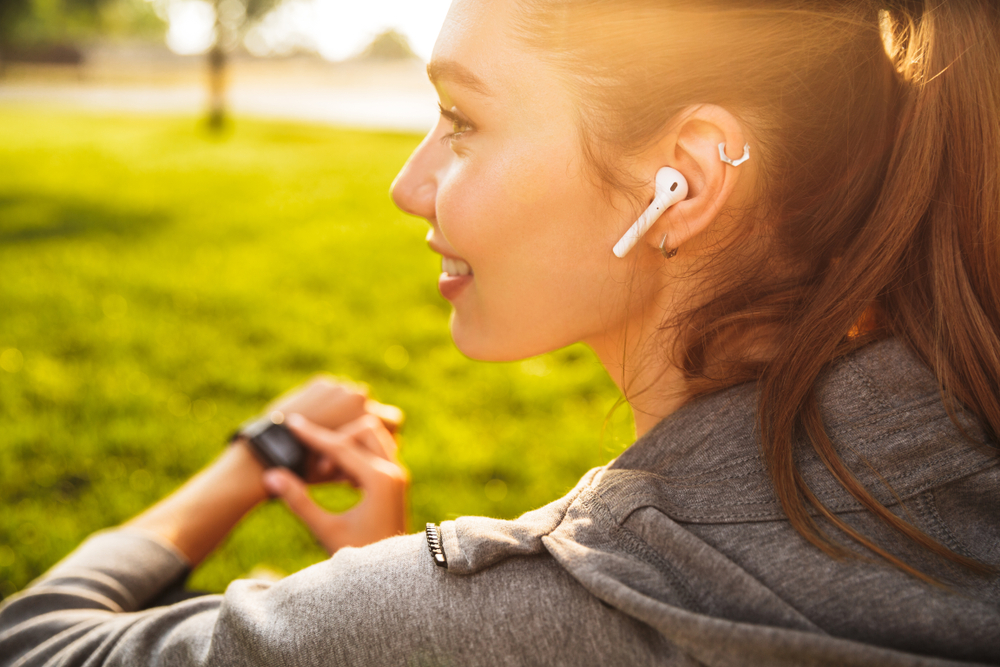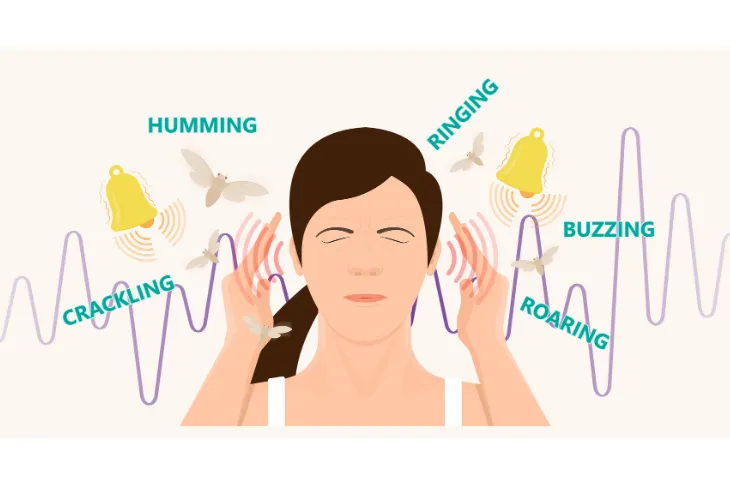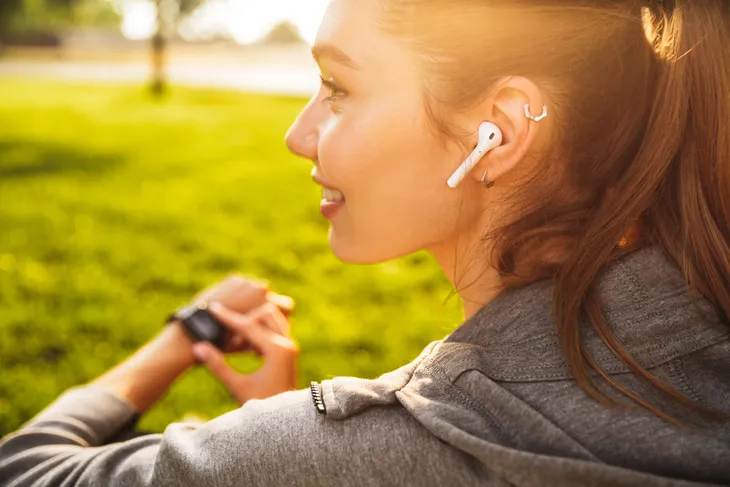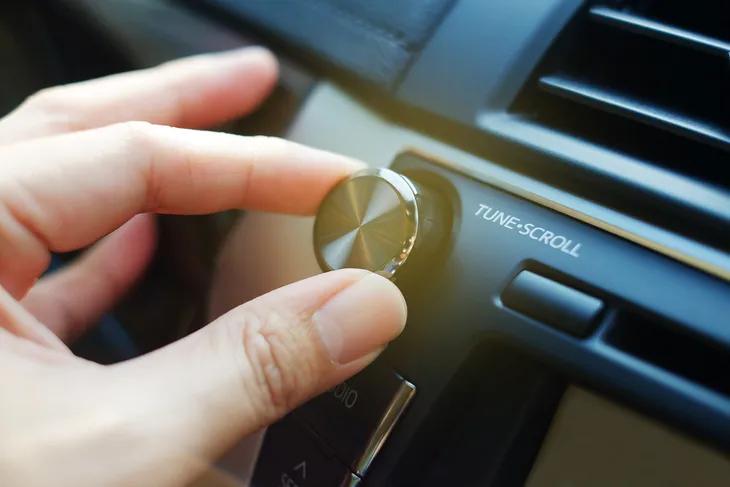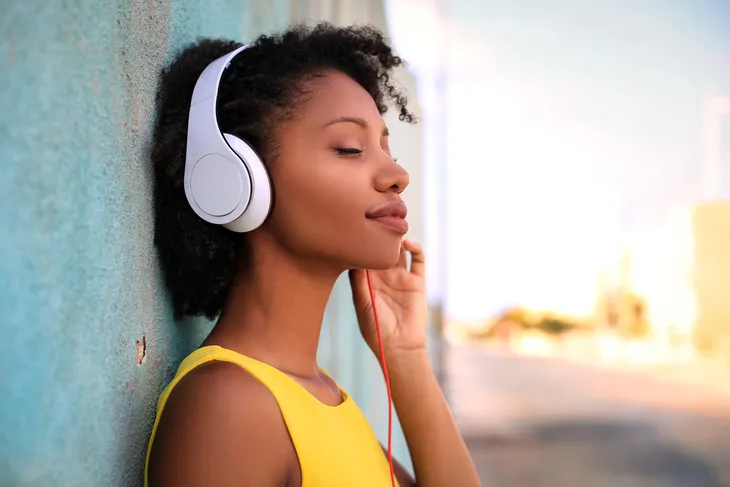Music aficionados know all too well that watching music live has its risks. Losing valuables, dancing too much, and accidentally positioning yourself next to the loudspeaker are chief among them.
Long exposure to loud noises is nothing to play with either. Tinnitus is a real problem for music enthusiasts across all demographics, and there’s more to blame than seating-chart happenstance. Today, we’re going to explore the role that headphones play in the nation’s declining hearing health and share some tips on how you can prevent tinnitus.
What Is Tinnitus
It’s not painful, but tinnitus can certainly be a pain. Often described as a persistent ringing of the ears, tinnitus is the medical term for any level of buzzing, humming, ringing, or swishing sounds. These sounds can be continuous or intermittent and vary in loudness. Tinnitus is common too, affecting over 50-million American adults.
The condition can arise in any number of ways. Certain drugs can cause it, as can medical conditions, blockages of the ear, and the natural aging process. Although, it primarily occurs as the result of prolonged exposure to loud sounds or single exposure to a sudden, extremely loud noise. These loud sounds can and do cause permanent damage to the inner ear, which in turn can lead to the development of tinnitus.
Can Headphones Cause Tinnitus?
The short answer is yes, but the tinnitus versus headphones situation is indeed a bit more nuanced. You see, it’s not the headphones themselves that are causing the tinnitus, it’s how the individual is using them.
Headphones are perfectly safe when used properly, but a lot of us don’t use them properly. Running through the entirety of your 3-hour dance mix playlist at max volume may be fun, but it’s far from the safest route. Recall that tinnitus is the result of prolonged exposure to loud noise.
That’s not to say that you must choose between tinnitus and a lifetime of no music. There are ways to do good by your hearing while staying on top of the latest releases. Let’s take a look at some healthy hearing strategies that you can employ today to keep you listening to your favorite songs and podcasts well into the future.
Lower the Volume
You know the volume warning that you’re always dismissing on your smartphone? You should probably start taking its advice. Headphones give us the freedom to blast our favorite sounds without annoying those around us, but that doesn’t mean that we always should.
According to the National Institute of Health, music through headphones at maximum volume can land anywhere between 94 to 110-decibels A (dBA). But ear damage happens through exposure to prolonged or repeated sounds at or above 85-dBA or roughly the volume of a motorcycle. Lowering the volume on your headphones can help mitigate your risk and lower the potential for long-term damage.
Lessen the Length
Average volume levels aren’t the only thing concerning the audiologists of the nation either. Protecting your ears is about managing the length of their exposure to moderately loud sounds as well.
Listening to your headphones at a moderate volume to keep you motivated throughout the length of your 35-minute elliptical session is perfectly fine, but using them to drown out a chatty co-worker for 6-plus-hours a day is not. If you’re serious about protecting your ears long-term, it’s important to be mindful of the length of each headphone listening session.
Use an App
The health and wellness space of your applicable app store is rich with tools to help you live healthier and more efficiently. It should be no surprise then, that apps designed to protect your ears from hearing damage abound.
Apps like Sound Meter and Decibel X use your smartphone’s built-in microphone to detect the volume of your environment and warn you of their danger. Hear Angel takes it a step further by monitoring you and your family’s headphone usage as a means to protect you from overexposure.
Change Headphones
You can also protect your ear with your wallet, by researching and purchasing headphones with your hearing health in mind. Over-ear headphones are preferable to in-ear buds. Earbuds funnel sound directly into your ear canal, and can even lead to excess earwax build-up and trauma.
Opting to spend a little more money for headphones with noise-canceling capabilities is a wise idea too. Noise-canceling headphones can filter out the dangerously loud noises around you. By filtering out competing sounds from your surroundings, noise-canceling headphones also decrease the need to crank up the volume to hear every note.
Protection
We’ve established that it takes very little to cause actual damage to your ears. As such, you should be mindful of the sounds that you interact with and take the necessary steps to protect yourself.
Earplugs are your friend and should be relied upon in noisy workplaces, construction sights, rock concerts, lawnmowers, and airports. Distancing yourself from loudspeakers and limiting the volume of your stereo system is beneficial too. Familiarize yourself with the volume level danger threshold to better understand when your hearing might be at risk.
60-60 Rule
This helpful little tool doesn’t require any new investments or coveted smartphone hard drive space. No, the 60-60 rule is more of a headphone listening guideline designed to protect your hearing from irrevocable damage.
Instead of maxing out your cellphone’s volume all commute long, lower the volume to 60-percent of your phone’s maximum and listen for just 60-minutes at a time. The 60-60 rule is your best shot at protecting your ears from headphone-induced tinnitus and the long-term trauma that typically follows.
Keep Your Heart Healthy
You can be forgiven for not knowing the link between your cardiovascular health and your central auditory system. It comes as a surprise to many. But the connection between the two has been known for quite some time.
A restriction of blood supply compounds other damaging influences like noise, injury, and disease. So exercise, eat healthily and protect your heart so that it can do everything that it can to protect your hearing.
De-Stress
Stress plays a factor in tinnitus too, either by exacerbating existing symptoms of tinnitus and sometimes even triggering the ringing sensation itself. All the more reason to kick back after a long day and do whatever it is you like to do to unwind. Provided that isn’t, you know, blasting your music at max volume for longer than 60-minutes.
Hearing Loss Warning Signs
To protect your hearing in the long term, you’ll want to try and familiarize yourself with the potential warning signs accompanied by hearing loss. It’s probably wise to schedule a hearing exam if you’re at all concerned about your ability to hear the sounds around you.
Warning signs of hearing loss include frequently asking people to repeat themselves, difficulty hearing people on the phone, tinnitus, and turning the radio or television up too loud. There are more signs, but again it’s best to seek professional help for a more accurate perspective.
The Takeaway
So, can headphones cause tinnitus? Yes. Yes, they can. But hey, it’s not all bad! We did learn all about the fragility of our ears, and a few tips and tricks on how to protect them long-term.
Invest in good, over-ear headphones and protective equipment, lean on technology to monitor your exposure to dangerously loud noises, and take care of your body. Preventing hearing damage is a matter of mindfulness, discipline, and preparation. So practice these tips now to keep you listening to your favorite 90s hip-hop tracks well into your 90s.
